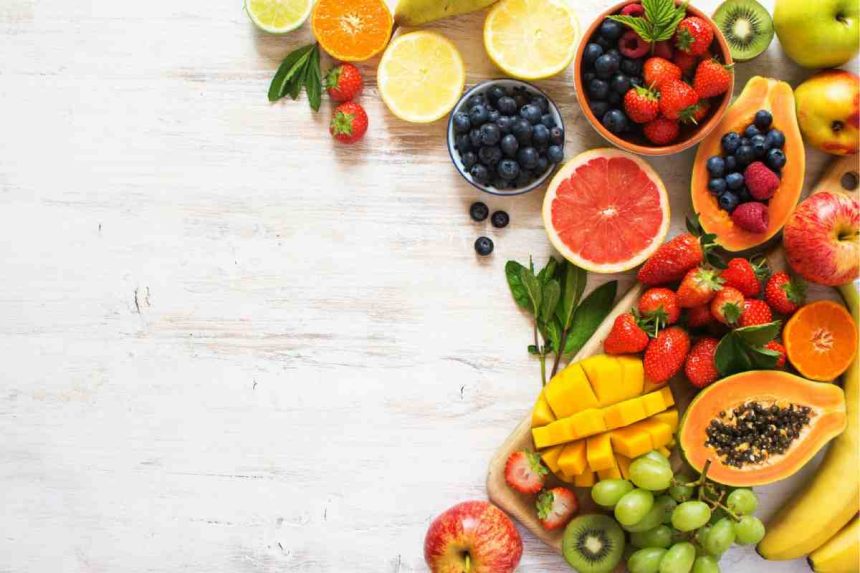The Importance Of Antioxidants
Antioxidants are chemicals that protect against disease and keep you healthy by getting rid of dangerous molecules called free radicals. These molecules can damage cells, proteins, and DNA. Contributing to aging and various health conditions. Understanding the importance of antioxidants and incorporating them into your diet through supplements and vitamins can significantly enhance your well-being. This article explores the benefits of antioxidants. Their sources, and how to effectively integrate them into your lifestyle for a healthier life.
Table of Contents
Understanding Free Radicals And Oxidative Stress
As a result of regular metabolic processes, the body makes free radicals, which are molecules that are not stable. But things in the surroundings like pollution, radiation, cigarette smoke, and pesticides can also make more free radicals. These chemicals are very reactive and can lead to oxidative stress. Which is when the body doesn’t have enough antioxidants or free radicals.
A lot of long-term illnesses, like heart disease, diabetes, cancer, and neurological diseases like Alzheimer’s, are linked to oxidative stress. It also speeds up the aging process by hurting cells and organs. Here’s where antioxidants come in. As a protection, they fight free radicals and lower oxidative stress.
The Role Of Antioxidants In Health
Getting enough antioxidants is important for staying healthy and avoiding getting chronic diseases. They do their job by giving electrons to free radicals. Which makes them stable and stops them from damaging cells. Here are some key benefits of antioxidants:
Protecting Against Chronic Diseases: By getting rid of free radicals and lowering inflammation, antioxidants help lower the chance of getting chronic diseases. In terms of heart health, this is very important because oxidative stress can hurt blood vessels and cause atherosclerosis, a disease in which arteries harden.
Supporting Immune Function: To fight off germs and illnesses, you need a strong immune system. Oxidants, like vitamins C and E. Are very important for immune health because they protect immune cells from harm and help them fight off germs better.
Promoting Healthy Aging: Antioxidants protect cells and organs from oxidative damage, which slows down the aging process. This can make your face healthier, your brain work better. nd your risk of getting diseases that come with getting older go down.
Enhancing Eye Health: A few vitamins, like lutein and zeaxanthin, are especially good for your eyes. These glasses help protect the eyes from UV light, which can hurt them. They also make you less likely to get cataracts and age-related macular degeneration.
Reducing Inflammation: A common cause at the root of many diseases is chronic inflammation. Antioxidants help lower inflammation by blocking free radicals, which set off the body’s inflammatory processes.
Key Antioxidants And Their Sources
There are several types of antioxidants, each with unique benefits and sources. Here are some of the most important antioxidants and where you can find them:
Vitamin C: Vitamin C is a strong antioxidant that helps keep cells safe from damage caused by free radicals. It is known to improve the immune system. You can find it in bell peppers, broccoli, spinach, citrus fruits, and strawberries.
Vitamin E: This fat-soluble antioxidant protects cell membranes from damage and supports skin health. Sources of vitamin E include nuts, seeds, spinach, and vegetable oils.
Beta-carotene: A precursor to vitamin A. Beta-carotene is an antioxidant that supports eye health and immune function. It is abundant in carrots, sweet potatoes, pumpkin, and leafy greens.
Selenium: This mineral is a crucial component of antioxidant enzymes that protect cells from damage. Whole grains, Brazil nuts, and fish are all good sources of selenium.
Flavonoids: These plant compounds have strong antioxidant and anti-inflammatory properties. They are found in fruits, vegetables, tea, chocolate, and wine.
Polyphenols: Polyphenols, which can be found in many plant-based foods, have been shown to lower the chance of getting chronic diseases. Berries, nuts, seeds, olive oil, and coffee are all good sources.
Glutathione: Sometimes called the “master antioxidant,” glutathione is made by the body and helps other antioxidants grow back. This chemical is made by your body and can remain found in foods like broccoli, Brussels sprouts, garlic, and onions.
Antioxidant Supplements: Are They Necessary?
The Importance Of Antioxidants. Getting antioxidants from food like fruits, veggies, nuts, and whole grains is the best way to do it. However, supplements can sometimes be useful. People with certain health problems, limited diets, or higher levels of oxidative stress may benefit from taking antioxidant pills to make up for lost nutrients and give them extra support.
Popular Antioxidant Supplements
Vitamin C: Available in various forms, including tablets, nmn-capsules, and powders, vitamin C supplements remain widely used to boost immune function and reduce oxidative stress.
Vitamin E: Vitamin E pills come in both natural and artificial forms. They are often taken to protect against heart disease and keep the skin healthy.
Coenzyme Q10 (Coq10): This antioxidant supports energy production in cells and is particularly beneficial for heart health. CoQ10 supplements remain commonly used by individuals with heart conditions or those taking statin medications.
Resveratrol: A lot of people like resveratrol pills because they might help fight aging and keep the heart healthy. It can remain found in red wine and grapes.
Alpha-Lipoic Acid: This antioxidant helps regenerate other antioxidants and supports glucose metabolism. It remain often used by individuals with diabetes to improve insulin sensitivity.
Curcumin: Derived from turmeric, curcumin is a potent antioxidant and anti-inflammatory compound. People often take supplements to keep their joints healthy and reduce stiffness.
Integrating Antioxidants Into Your Lifestyle
Incorporating antioxidants into your daily routine can be simple and enjoyable. Here are some practical tips for boosting your antioxidant intake:
Eat A Rainbow Of Fruits And Vegetables: Different colored fruits and veggies have different kinds of antioxidants. Try to eat a lot of different colored foods to get a wide range of antioxidants.
Choose Whole Foods Over Processed Foods: Processed foods often have extra sugars and fats that are bad for you and can make oxidative stress worse. Whole foods have a lot of them naturally.
Drink Green Tea: Flavonoids and other antioxidants can remain found in large amounts in green tea. A big antioxidant boost can come from drinking a cup of green tea every day.
Incorporate Nuts And Seeds: Nuts and seeds remain packed with vitamin E, selenium, and other antioxidants. You can eat them as a snack or add them to yogurt or soups.
Use Herbs And Spices: Many herbs and spices, such as turmeric, ginger, and cinnamon, have high antioxidant content. Use them to flavor your meals and boost your antioxidant intake.
Consider Quality Supplements: If you have specific health needs or dietary restrictions, talk to your healthcare provider about incorporating antioxidant supplements into your regimen. Choose high-quality supplements from reputable brands.
Conclusion
The Importance Of Antioxidants. By getting rid of dangerous free radicals and lowering oxidative stress, antioxidants are very important for staying healthy and avoiding getting sick. Adding a range of antioxidant-rich foods to your diet and thinking about supplements when you need them can make a big difference in your health. By understanding the importance of antioxidants and making conscious choices to include them in your lifestyle, you can protect your health, support your immune system, and promote healthy aging.






